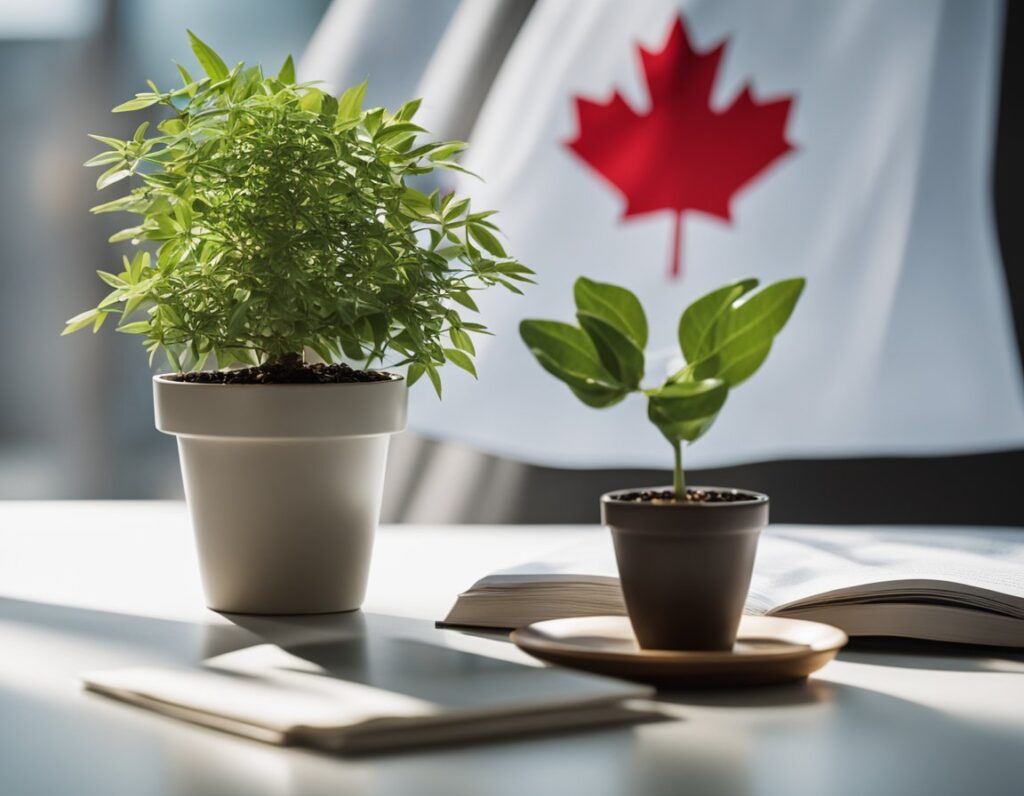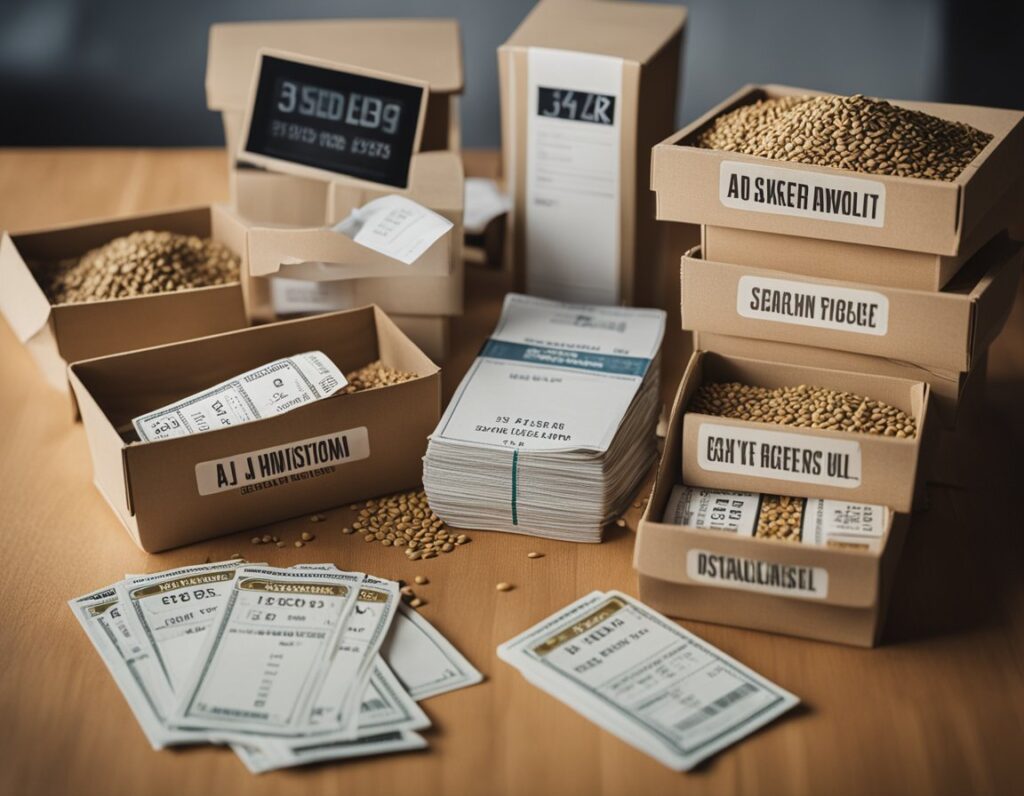
In Canada, seed regulations are crucial for governing the production and distribution of seeds, ensuring quality and safety. This framework helps maintain standards while also preparing for future advancements.
The Seeds Act and its accompanying Seeds Regulations form the backbone of Canada’s legal framework for seeds. These regulations are vital for ensuring that seeds sold within Canada meet specific quality standards. They cover various aspects, including the labeling, testing, and registering of seeds.
Under this act, seeds must be accurately labeled to inform consumers about their contents and quality. Testing processes ensure that seeds meet purity and germination standards, reducing the risk of inferior quality entering the market. Certification is another crucial element, requiring seed sellers to obtain approval, ensuring they provide high-quality products. These comprehensive regulations aim to protect both consumers and businesses in the seed industry, facilitating trust and reliability.
The Seed Regulatory Modernization (SRM) initiative aims to streamline Canada’s seed regulations, making them more adaptable and efficient. This ongoing process involves consultations with stakeholders to identify potential improvements.
The modernization efforts focus on reducing bureaucratic hurdles without compromising quality and safety. By incorporating advanced technologies and practices, this initiative seeks to make the regulation of seeds more responsive. Streamlined processes could lead to faster approvals and reduced administrative burdens, ultimately benefiting producers, sellers, and consumers. The initiative is part of the government’s broader regulatory reform agenda, which intends to update outdated provisions and align them with current industry standards.
The Canadian Food Inspection Agency (CFIA) plays a pivotal role in enforcing seed regulations. As the authority responsible for overseeing compliance, the CFIA ensures that all seed-related activities adhere to national standards.
One of its main roles is the inspection and certification of seeds, a process that involves rigorous testing to confirm quality and authenticity. The CFIA also monitors imports and exports, maintaining Canada’s integrity in the global seed market. Through these actions, the CFIA protects consumer interests and upholds Canada’s reputation as a leader in agricultural standards. By working closely with industry participants, the agency fosters an environment of trust and cooperation, essential for the sector’s growth and development.

Ensuring the quality and certification of seeds is crucial for successful crop production. In Canada, several key components such as purity and grading standards, pedigreed seed certification, and specific production procedures uphold these standards.
Seed purity and grading are critical to maintaining high agricultural standards. Seeds must meet specific guidelines regarding contaminants and purity levels. These standards are essential for both seed growers and farmers seeking quality assurance.
Quality Grades determine how well a seed batch conforms to set criteria, such as purity and germination rates. Adherence to these grades ensures your seeds are less likely to contain unwanted materials or inferior seeds. Maintaining these standards is facilitated by regular testing and monitoring by recognized bodies.
Pedigreed seed certification is managed by the Canadian Seed Growers’ Association (CSGA). It includes a classification system that distinguishes seeds based on their generational status, such as breeder seed, select seed, and certified seed. Each category has specific certification requirements.
This system ensures traceability and authenticity, allowing you to trust the integrity of the seeds you use. Certified status is vital for maintaining consistency in crop production and satisfies industry-best seed quality standards. By following the certification procedures, you contribute to the overall reliability of the wider Canadian seed system.
The Canadian seed crop certification process involves several stages, starting with variety development. The CSGA provides guidelines that dictate each phase of growing and breeding seeds. Circular 6, a comprehensive set of regulations, outlines the standards and procedures for achieving pedigreed seed status. Crop certificates are issued upon successful compliance with these standards. The procedures involve field inspections, quality testing, and thorough documentation led by certified inspectors. Your adherence to these procedures is crucial for maintaining the high quality of Canadian seed production, supporting robust and reliable agricultural practices.

Understanding the rules for importing and exporting seeds is crucial for legal compliance and maintaining seed quality. This includes adhering to specific regulations and quality control measures required by Canadian authorities.
When importing seeds into Canada, compliance with the Seeds Act and Seeds Regulations is mandatory. The Canadian Food Inspection Agency (CFIA) oversees these regulations to ensure the seeds meet Canada’s quality standards.
You must obtain the necessary permits and complete inspections before the seeds enter the country. Make sure the seeds align with pest control guidelines to prevent the introduction of non-native pests. Labeling and packaging should also follow the CFIA’s guidelines for accurate product information.
For exporting seeds, maintaining quality is vital to meet international standards and ensure customer satisfaction. Obtaining certification from the CFIA is often required. This involves rigorous testing for genetic purity and germination rates.
You must document the seed variety, origin, and treatment conditions to meet the importing country’s requirements. Quality control measures typically include cleanliness, absence of foreign materials, and viability tests. By adhering to these protocols, you can ensure that your seeds maintain high standards, fostering trust and reliability in global markets.

When growing cookies seeds in Canada, understanding the specific labelling and packaging requirements is essential. These standards ensure compliance with Canadian regulations, focusing on accuracy, safety, and transparency.
Proper labelling is crucial to meet Canadian regulations. Each seed package must include accurate labels specifying the seed variety and varietal purity levels. Information like germination rates and country of origin should be clearly marked. Labels have to be bilingual (English and French) to comply with national requirements.
Using an accredited laboratory for seed testing can provide the necessary credibility for your labels. This ensures the information is reliable, preventing the risk of regulatory penalties. Ensure labels do not mislead regarding the seed’s attributes or potential uses. By adhering to these standards, you maintain transparency and trust with consumers.
Packaging for cookies seeds must be designed to protect the seeds from physical damage or contamination. Choose materials that offer robust protection but also meet environment-friendly criteria, as eco-conscious packaging can appeal to many consumers. Packages must be securely sealed to prevent any risk of harm from external elements during storage and transit. Clearly mark all packages with essential details such as net weight, supplier information, and safety instructions. The packaging must withstand different handling and transportation conditions without compromising the integrity of the seeds inside. Ensure all packing processes are meticulously followed to maintain compliance with Canadian standards and promote the safety and quality of your product.

Ensuring compliance with Canadian cannabis laws is essential for cultivating cookies seeds legally. A framework involving inspections, penalties for non-compliance, and transparency measures helps maintain regulated practices.
Inspections are a critical part of maintaining compliance. Enforcement officers, including inspectors and analysts, conduct regular visits to ensure adherence to regulations. These officers may represent entities like the Canadian Seed Growers’ Association (CSGA) and act under the authority of the Minister of Agriculture and Agri-Food. Their responsibilities include checking licensing, adherence to growing standards, and verifying that no violations occur.
Non-compliance can lead to severe consequences, making these officers essential in ensuring safe and lawful practices.
Non-compliance with cannabis cultivation regulations can result in significant penalties. Violations may lead to fines, license suspensions, or revocation, and severe cases might require a tribunal decision. Penalties are designed to enforce the rules but also to deter potential violators.
The legal framework emphasizes strict adherence. Understanding these penalties can help you mitigate risks and maintain good standing with regulatory bodies.
Feedback and transparency are vital components of the regulatory process. Stakeholders are encouraged to provide feedback, creating an open dialogue between cultivators and authorities. Transparency measures ensure that rules and regulations are clear and accessible to everyone involved in the cultivation process.
This ongoing communication helps improve compliance strategies and fosters trust between growers and regulatory bodies. By engaging with these measures, you can stay informed and compliant with the latest legal requirements.
Understanding the legal nuances of variety registration and intellectual property is crucial when growing Cookies seeds in Canada. It involves navigating the processes for variety registration and protecting breeders’ rights.
To register a seed variety in Canada, you must first ensure that it meets the standards outlined by the Canadian Food Inspection Agency. Varietal purity and compliance with health and safety regulations are essential. You will need to provide detailed identity information to prevent fraud and facilitate international trade.
Engage with a recognized authority, such as the Canadian Seed Growers’ Association, to assist in the certification process. Documentation and incorporation by reference of your variety ensure transparency and traceability. This step is vital for registration of varieties, which enables tracking through the seed certification system. It’s essential to comply with these regulations to avoid complications in selling or distributing the seed.
Plant Breeders’ Rights (PBR) protect the intellectual property of new plant varieties. This right allows breeders to control the propagation, sale, and distribution of their varieties. In Canada, once you obtain PBR, you can enforce exclusivity over your Cookies seeds variety. Registration with the Canadian Intellectual Property Office is necessary to secure these rights. Ensure that your variety is distinct, uniform, and stable (DUS) to qualify. Being aware of the rights and obligations under PBR is crucial to protect against unauthorized use. Collaboration with a working group specializing in plant intellectual property can provide additional insights and support.
When it comes to growing cannabis seeds in Canada, several regulations govern cultivation. Key questions address legal growing limits, penalties for violations, and specific allowances for medical patients.
In Canada, the Cannabis Act establishes the legal framework for cannabis cultivation. It regulates the possession, production, and distribution of cannabis seeds. Compliance with both federal and provincial laws is necessary, ensuring safe and lawful cultivation.
In Ontario, individuals are allowed to grow up to four cannabis plants per residence. This limit applies regardless of the number of adults living in the household. It’s crucial to adhere to this rule to avoid legal issues.
Exceeding the legal plant limit can result in severe penalties. These may include fines or criminal charges, depending on the number of extra plants. It’s important to comply with local laws to ensure that you remain within legal boundaries.
Importing cannabis seeds into Canada is subject to legal restrictions. Individuals must ensure that the seeds are legally sourced and comply with Canadian import laws. Unauthorized importation can lead to legal repercussions, underlining the importance of following proper procedures.
To acquire a personal cultivation license, you must apply through Health Canada. The process involves providing personal information and details about the intended cultivation site. Approval is based on meeting specific conditions and regulatory standards.
We ship and deliver world wide via USPS and various couriers.
We offer a wide range of secure and anonymous online payment options.
We care about you, our customer. Please contact us with any questions or concerns.
Find out more about the benefits of being a loyal and regular customer.
WE ARE EVERY GROWERS ONE STOP SHOP TO ACQUIRE PREMIUM CANNABIS SEEDS FOR SALE IN THE USA, CANADA AND AUSTRALIA

Farmers Lab Seeds 2024, | All Right Reserved
Seeds are sold as novelty items, souvenirs, and collectibles. They contain 0% THC. We encourage our customers to check the legislation in their Country, State, Province, and Municipality prior to purchasing items from our store. We do not provide growing information.
All seeds are sold as hemp, and lab tested under 0.3% THC. This product is not for use by or sale to persons under the age of 21. This product should be used only as directed on the label. It should not be used if you are pregnant or nursing. Consult with a physician before use if you have a serious medical condition or use prescription medications. A Doctor’s advice should be sought before using this and any supplemental dietary product. All trademarks and copyrights are property of their respective owners and are not affiliated with nor do they endorse this product.
These statements have not been evaluated by the FDA. This product is not intended to diagnose, treat, cure or prevent any disease. Individual weight loss results will vary. By using this site, you agree to follow the Privacy Policy and all Terms & Conditions printed on this site. Void Where Prohibited by Law.